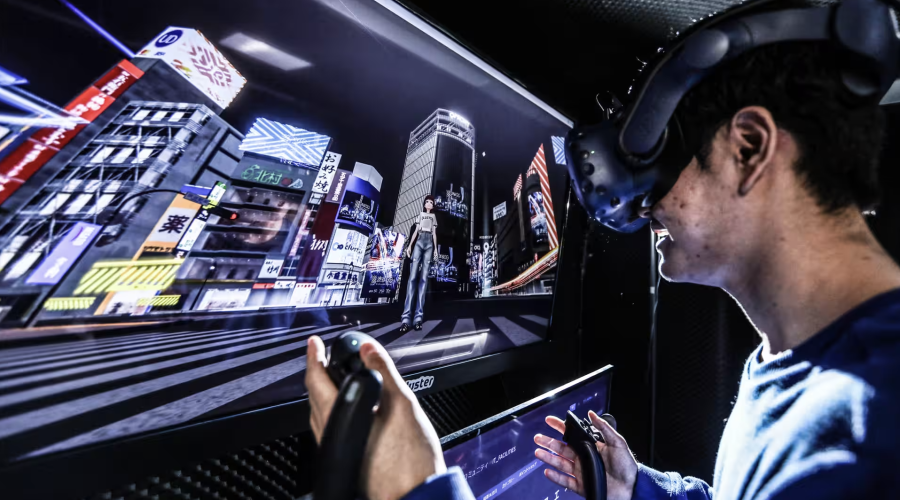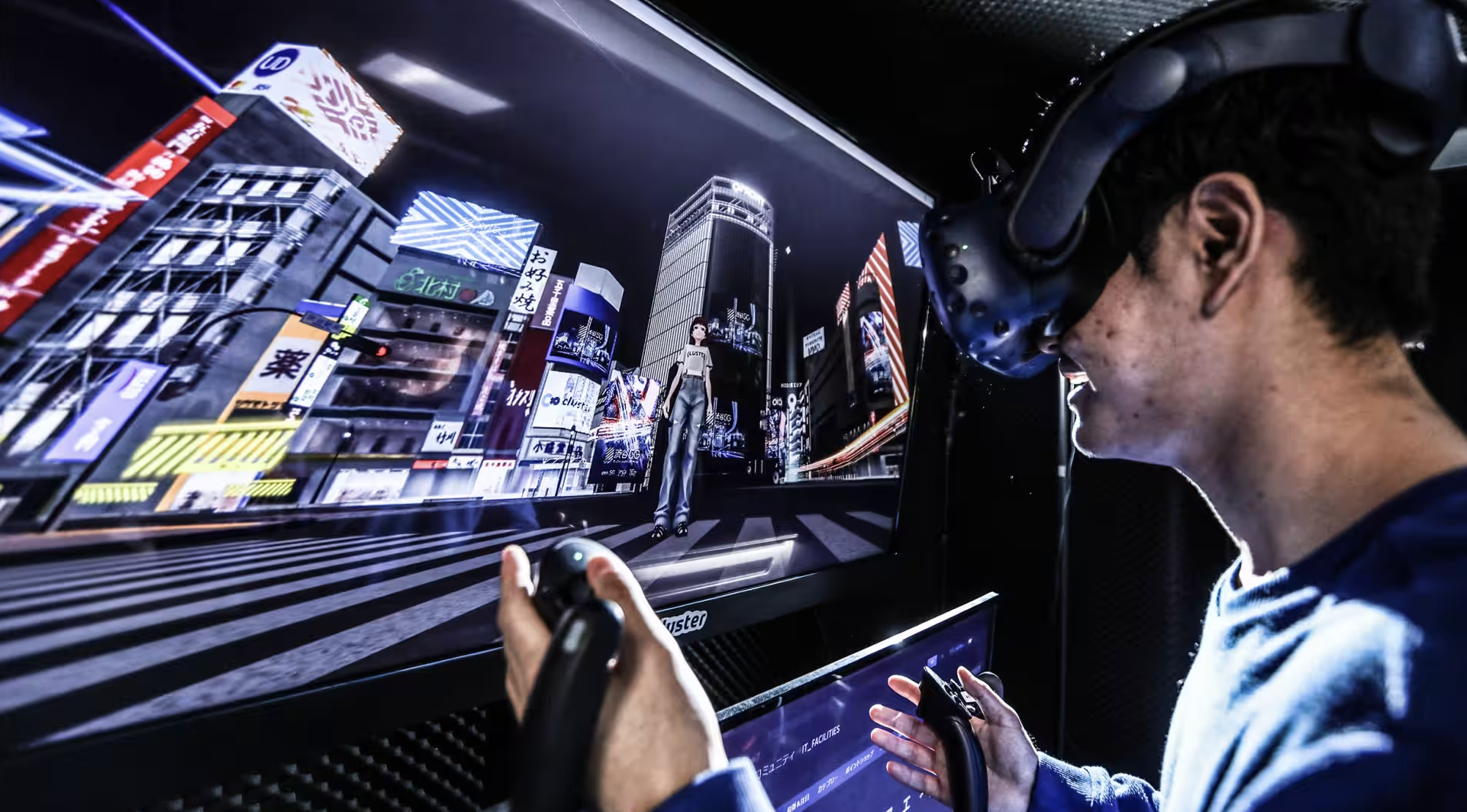Asia’s metaverse is still thriving, from digital cities to gaming
In real life, Hitsuzi is a 32-year-old Japanese government employee who lives alone in a suburb north of Tokyo. He usually comes home from work around 8 p.m., eats a ready meal, and then, starting around 10 p.m., the fun begins. He puts on a set of VR goggles that transport him to a great gilded hall built in the clouds, where he chats and games with friends from all over the globe into the early hours of the morning.
In the virtual world, Hitsuzi interacts with his friends not as a 30-something office worker but in the form of his avatar: a purple-haired girl sporting a pair of cat ears and a black mini dress.
He says he spends every evening on VRChat, a virtual platform, chatting with other users from a variety of countries and attending virtual gatherings such as DJ events.
"It’s different from talking on the phone because you can see your friend’s face and gestures, and you feel that they are actually there," Hitsuzi, who asked to use a pseudonym, told Nikkei Asia.
He even sometimes falls asleep with his VR goggles on, alongside his friends in the virtual world. The clunky goggles keep him from sleeping well, he complains, but it is worth it for the feeling of togetherness. Sleeping in virtual reality "doesn’t recover my physical health, but it helps my mental health because I don’t feel lonely," he added.
Hitsuzi is among a rapidly growing population across Asia that spends much of its free time in the metaverse — defined as any type of collective, three-dimensional, virtual shared space where users are able to interact with one another’s avatars (digital personas).
In some Western markets, the metaverse saw a boom in interest during the pandemic, but virtual reality lost out once actual socializing became readily available again. In some Asian markets, notably Japan and South Korea, however, it is still going strong.
Investors in the U.S. have pulled back after the disappointing experience of Facebook, which renamed itself Meta in 2021 and rebranded as a metaverse company, where its users would eventually occupy a 3D infinite universe known as Horizon Worlds.
Horizon Worlds has proved unpopular, especially with investors, who sold off Meta stock. The company’s Reality Labs business unit — responsible for metaverse-related operations — lost almost $25 billion between October 2021 and June this year, according to company reports.
At the company’s annual Meta Connect conference in September, Meta founder Mark Zuckerberg mentioned the metaverse only a handful of times. "AI" has become his new buzzword.
"Meta has quietly distanced itself from the metaverse over the past year or so, and the term was barely used at Connect," said Leo Gebbie, principal analyst at CCS Insight.
"This was unsurprising, as the term had become the subject of ridicule among consumers and large sections of the technology industry."
Nikkei Asia
#immersiveexperiences #virtualworlds #virtualexperiences #metaverseexperiences #metaversemarketing #web3marketing #asiametaverse #vrchat







